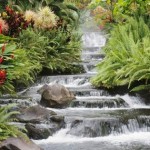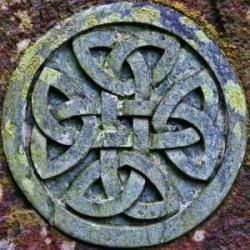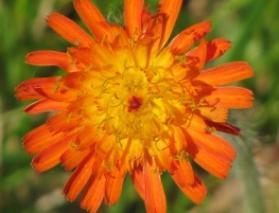 Death
Death
Most forms of spirituality are based on some notion of life after death, either an afterlife or reincarnation. Both of these require something that exists apart from any material medium, which is to say, something supernatural. My rejection of such an afterlife, however, is not based solely on the naturalistic perspective, which rejects the supernatural. It is also based on my experience of spirituality.
In countless hours of meditation, I have observed the comings and goings of the mental phenomenon that I call myself. I have found no changeless essence amidst these comings and goings, only the ephemeral and contingent. Together, the scientific facts and these direct observations have convinced me that there is no changeless essence constant throughout a life, much less beyond life. We are a process of change composed of smaller processes and embedded in larger ones. Our death is the end of the process that we call our life, and that’s that.
There is, however, a certain sense of “immortality” that I have experienced in moments of deep stillness that I believe is also supported by Naturalism. If we are all similarly a part of the same great otherness, the same great process of life, then there is a sense in which all life is in essence the same. As an individual, death is the end of the narrative that I identify as “my” life, but life continues without “me.” That is a fact.
To take joy in and get a sense of meaning from this fact requires selflessness. It requires that we value others as much as we value ourselves. It requires that we can see ourselves in others and others in ourselves – including others who will be living in the distant future.
Each organism is an individual awareness, but awareness encompasses all sentient individuals. Each of us is a wave on the ocean of awareness. If we identify with our being a separate wave, we have to face the inevitability of the shore upon which we are doomed to break. If we identify with being part of the ocean, then we identify with that which will still be here long after any particular wave breaks. It is a rather unnatural thing to experience such selflessness – but even brief glimpses can take some of the sting out of the idea of death. (I presented this idea at length in an article titled, “Naturalism and the Idea of One Mind,”(1) so I won’t say more here.)
Besides this sense of immortality, there are other ways in which awareness of death and its finality enter my view of spirituality. Most directly is the simple idea that if this is the only life we are given and its duration is uncertain, does it not make sense to live it as completely as we can and find beauty in each moment we are given? We get so caught up in trivialities; mindfulness of death, our own and of those we care about, has a way of showing us what is trivial and what is important in life.
Mindfulness
When it comes down to it, my view of spirituality can be summed up as “mindfulness.” Mindfulness is the jewel of spirituality, everything else I have written on the subject is but a setting for this jewel.
So much has been written about mindfulness, yet one could read a hundred books on it and be no more mindful as a result. Being mindful is something that we simply have to do. I have contributed my share of writing on mindfulness, particularly a formal practice of mindfulness(2), and will not add to it here.
Mindfulness is not, however, something we should restrict to a formal practice, such as daily meditation. It is something we should bring to our every encounter with events and people.
It has been said that everything is beautiful in its own way, and I would add that everything is interesting in its own way. A mindful person is able to find this interesting aspect in events and people, and to take delight in it. To find ourselves bored in this endlessly interesting world is to lack this resource of mindfulness (and of course we all lack that resource much of the time). (3)
To love life and find it fascinating and beautiful – this is to honor the natural creation as the pious theist honors his or her God. Unlike the gods of many religions, Nature asks nothing of us. To love it is to love it freely.
To go back to the question I asked earlier: “does it not make sense to live it [life] as completely as we can and find beauty in each moment we are given?”, a naturalistic spirituality as I have presented it in the various articles I have posted here, is my affirmative answer to that question.
* * * * *
Over the past 10 years, I have posted 80+ articles here at SNS. In these articles, I have presented my thoughts and experiences about spirituality in considerable detail. It has never been my aim to be scholarly or theoretical about my ideas, but I have tried to be as honest as I can about my spiritual experiences.
It has also been my aim, frustrated creative writer that I am, to make my articles aesthetically pleasing. Whether I have succeeded is for others to judge, but I have tried.
I hope at least a few readers have found something of value in these articles, or at least found them enjoyable.
Subscribe to The Spiritual Naturalist Society
Learn about Membership in the Spiritual Naturalist Society
__________
The Spiritual Naturalist Society works to spread awareness of spiritual naturalism as a way of life, develop its thought and practice, and help bring together like-minded practitioners in fellowship.
Notes:
1. Naturalism and the Idea of One Mind, published April 14, 2016
2. Articles on a formal mindfulness practice include:
Getting Started with Meditation, published Oct. 13, 2016
Something Special May Happen, published April 1, 2013
Contemplation and Meditation, published March 5, 2020
3. Articles on bringing mindfulness into everyday life include:
Mindfulness and the Environment, published July 5, 2018
Heroic Mindfulness, published Oct. 11, 2018
Adventure, Contemplation, Creation, published June 13, 2019













